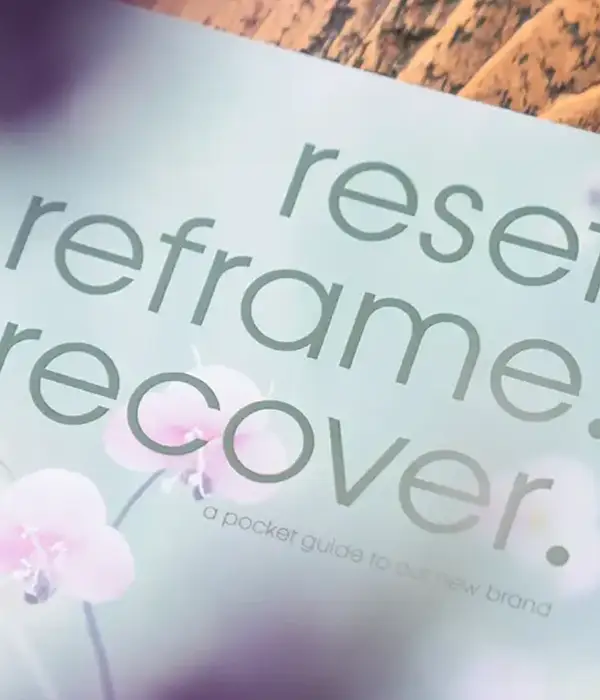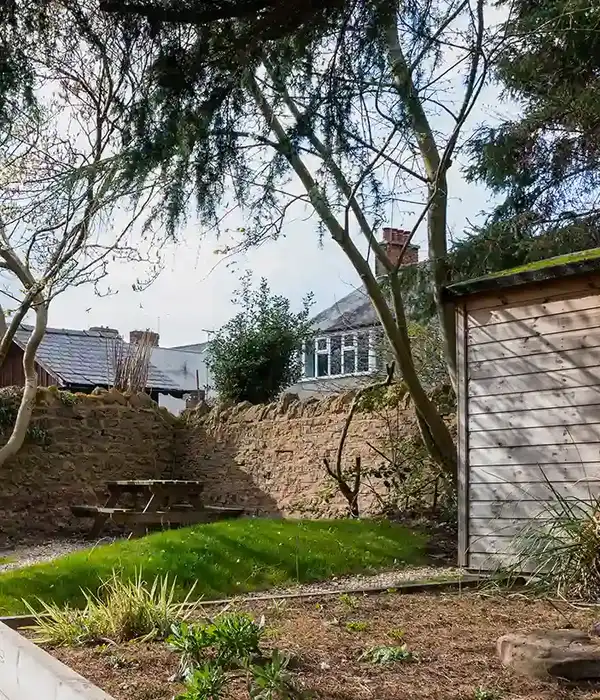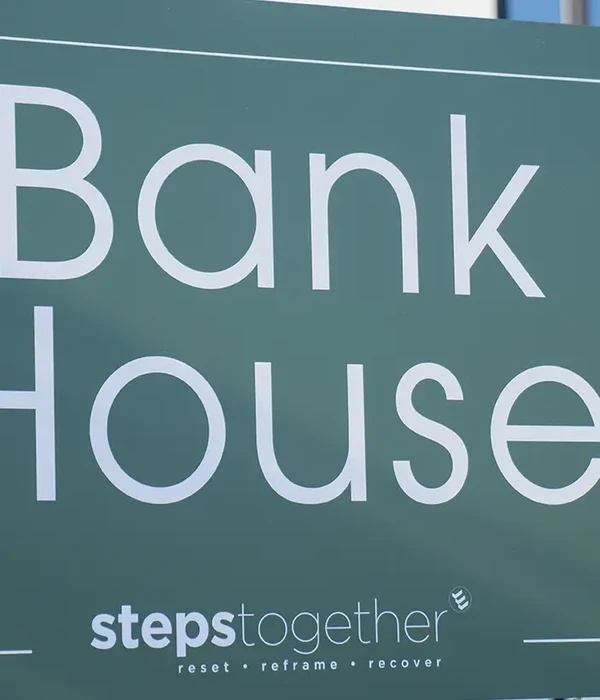Family Therapy
Family challenges can feel overwhelming, especially when communication breaks down or conflicts repeat. Family therapy at Steps Together creates a structured space where everyone can be heard, relationships can be strengthened, and new ways of moving forward together can be developed.
As part of our wider therapy modalities, family therapy works alongside options such as CBT, DBT, EMDR, individual and group therapy. This approach ensures that support is tailored to your needs and that the whole family benefits from the process.
Whether you’re exploring in-person sessions or online support, our aim is to make therapy accessible, practical, and focused on lasting change.

Take the First Step as a Family
Beginning therapy as a family can feel uncertain, but it is also a chance to face challenges together. By joining the process as a unit, we create space for every voice to be heard and valued.

Take the First Step as a Family
We know it takes courage to reach out, but we’re here to make that first step easier. By starting therapy together, we give ourselves the opportunity to grow closer, strengthen communication, and create a more supportive family environment. Let’s begin this journey side by side, knowing we’ll have guidance and a safe space throughout.
How Family Therapy Works
In family therapy, a trained professional guides discussions so that each person feels heard and understood. Sessions usually involve multiple family members, though sometimes only those most directly affected take part. The therapist helps identify patterns of behaviour and communication that may be causing tension or misunderstandings.
We often explore how different perspectives shape family dynamics. By doing this, we can uncover underlying issues that might not surface in everyday conversations. Therapists may use structured approaches, such as role-play or guided problem-solving, to encourage more constructive ways of interacting.
These sessions may be short-term, focusing on a specific issue, or longer-term when difficulties are more complex. Whether delivered online or face-to-face, the process is collaborative, with the therapist supporting the family in developing practical strategies for change. The goal is to create healthier routines and relationships that continue beyond the therapy room.


Who Is Family Therapy For?
Family therapy can benefit a wide range of people, from couples experiencing marital strain to parents and children struggling with conflict. It is also valuable when families face major life transitions such as divorce, bereavement, or relocation.
We see families seeking support when a member is living with a mental health condition, such as depression, anxiety, or substance use. The therapy helps relatives understand how best to provide support while protecting their own wellbeing.
This approach is not limited to traditional households. Blended families, same-sex couples, or extended relatives can all take part. In the UK, licensed marriage and family therapists and other qualified professionals provide this type of care, ensuring families receive structured and evidence-based support tailored to their needs.
Issues Family Therapy Can Help With
We focus on practical outcomes that families can see in their daily lives, such as clearer communication, stronger bonds, and healthier ways of coping with challenges. By working together, families build resilience while supporting individual recovery and growth
Depression Treatment
When a family member experiences depression, the effects rarely stay confined to the individual. Low mood, withdrawal, and loss of interest can ripple through the household, creating emotional distance and increasing tension in daily life. Family therapy provides a structured space where relatives can learn about the nature of depression treatment, gain clarity on how the condition affects behavior, and develop healthier ways of communicating. By understanding depression as a shared challenge rather than a personal failing, families can reduce isolation, strengthen empathy, and build supportive routines that encourage recovery.
PTSD Treatment
Post-traumatic stress disorder can alter family dynamics through hypervigilance, emotional distance, or sudden anger. Loved ones may feel confused or helpless when faced with these reactions. In PTSD therapy, we work together to understand symptoms and how they affect both the individual and the wider family unit.
Sessions provide a safe space to discuss triggers and develop strategies for managing them at home. Families learn to recognise signs of distress early and respond in ways that reduce escalation. This often includes setting boundaries, creating calming environments, and maintaining open communication.
We also support families in managing their own emotional responses, as living alongside PTSD can be challenging. Guidance ensures that care is balanced with self-care.
Conflict and Communication Challenges
Many families struggle with recurring arguments, poor listening, or avoidance of difficult topics. These patterns often lead to resentment and distance. Through therapy, we work on identifying the root of these conflicts and developing skills to manage them more effectively.
We encourage families to practise active listening and clearer expression of needs. This reduces misunderstandings and promotes respect in conversations. By focusing on tone, timing, and approach, families learn how to discuss sensitive issues without escalating into conflict.
Family therapy also helps restructure roles and responsibilities where imbalances exist. When expectations are clarified and shared more fairly, everyday stress decreases and cooperation improves. These changes create a healthier environment for everyone involved.
Anxiety Treatment
Anxiety often shows up in families as irritability, avoidance, or constant worry. These behaviours can strain relationships, especially when others do not fully understand what is happening. In Anxiety therapy, we look at how anxiety affects family life and guide relatives in responding with patience and constructive support.
Trauma Recovery Support
Trauma can affect how people relate to each other, sometimes leading to mistrust, withdrawal, or heightened conflict. In therapy, we help families explore these patterns and find healthier ways to connect. Our focus is on building resilience and supporting recovery without placing blame.
We guide families in recognising how trauma responses, such as avoidance or emotional numbness, influence daily interactions. By understanding these behaviours, relatives can adjust their expectations and provide more effective support. This reduces frustration and strengthens relationships.
Trauma therapy also introduces coping strategies that families can use together, such as grounding techniques and structured problem-solving. These tools create a sense of stability during recovery.
Addiction and Dual Diagnosis Concerns
Addiction affects not just the individual but the entire family system. Substance use can lead to secrecy, mistrust, and financial or emotional strain. In therapy, we address these issues while also recognising that some individuals may face dual diagnoses, such as addiction alongside depression or anxiety.
We guide families in understanding the nature of addiction and the role they play in either supporting recovery or unintentionally enabling harmful behaviours. This awareness is crucial for creating a supportive but firm environment.
Sessions also focus on rebuilding trust, establishing boundaries, and managing the stress that accompanies living with addiction. When dual diagnoses are present, therapy helps families coordinate care and support both mental health and recovery needs simultaneously
Other Therapy Modalities Available in Our Centres
We offer a range of additional therapies designed to support recovery from different angles. These approaches provide clients with more personalised care, helping them develop the tools and confidence needed for long-term wellbeing.
Dialectical Behaviour Therapy (DBT)
Dialectical Behaviour Therapy (DBT)

Benefits of Family Therapy
We focus on practical outcomes that families can see in their daily lives, such as clearer communication, stronger bonds, and healthier ways of coping with challenges. By working together, families build resilience while supporting individual recovery and growth.
Improved Communication
We often see families struggle with patterns of misunderstanding, where conversations turn into arguments or silence. Therapy helps us recognise these patterns and replace them with more constructive approaches.
Through guided sessions, we practise active listening and respectful expression. This allows every voice to be heard without judgement. For many families, this shift reduces tension and prevents conflict from escalating unnecessarily.
When communication improves, it becomes easier to address sensitive topics such as adolescent behaviour therapy or concerns about substance use. By creating space for honesty, we reduce blame and foster mutual respect. Over time, families find they can resolve disagreements more effectively, even without professional support.


Healthier Relationships
Family therapy strengthens the connections between us by addressing the root causes of emotional distance. Many families experience strain when unresolved issues linger, and therapy provides a safe setting to explore these challenges.
We learn to identify unhealthy patterns such as criticism, avoidance, or power struggles. By replacing them with healthier habits, relationships become more balanced and supportive.
For parents, this often means building stronger trust with children, particularly during adolescence when behaviour can become difficult to manage. Therapy helps us set boundaries while maintaining warmth and understanding. As trust grows, families feel more united and secure in their relationships.
Exploring Family Therapy Options
We provide a range of structured therapy settings designed to support individuals and families facing addiction-related challenges. Each option offers a different level of intensity and flexibility, allowing us to match care to personal needs and circumstances.
Our residential treatment programme offers a safe and structured environment where clients live on-site while receiving intensive support. This setting removes daily distractions and provides stability, which can be vital in the early stages of recovery.
Therapy sessions include both individual and family work, helping loved ones understand the recovery process. With 24-hour care, clients benefit from consistent guidance, structured routines, and group support.
Residential treatment also allows us to address underlying family issues that may contribute to addiction. By working closely with relatives, we strengthen communication and build healthier dynamics that support long-term recovery.
Our outpatient programme provides flexible support for those who cannot step away from family or work responsibilities. Clients attend scheduled sessions while continuing to live at home, making it a practical choice for many families.
This option includes structured therapy, group sessions, and family involvement where appropriate. We focus on teaching coping strategies, improving communication, and managing triggers in real-life settings.
Outpatient care offers a balance between professional support and personal independence. It allows families to remain actively involved in treatment while maintaining daily routines.
Through our specialist counselling services, we address specific issues such as addiction, trauma, and relationship difficulties. Counselling can be delivered as one-to-one sessions or as family-focused therapy.
We use evidence-based approaches to help families navigate conflict, rebuild trust, and improve emotional wellbeing. Relationship counselling is often included to strengthen bonds and reduce stress within the home.
These sessions are tailored to individual and family needs, ensuring that support remains relevant and meaningful. By focusing on the root causes of challenges, we help families create sustainable changes.
Typical Sessions and Duration
Family therapy usually begins with a structured process that helps everyone feel comfortable and sets clear goals. The length of treatment depends on the issues being addressed, the family’s readiness for change, and whether the approach is short‑term or long‑term.
What to Expect in the First Session
In the first meeting, we focus on introductions and understanding why the family has come to therapy. Each member has the chance to share their perspective, while we listen and gather information about relationships and challenges. This helps us identify patterns and areas that need attention.
We also explain how sessions will run, what our role is, and what families can expect from the process. Establishing trust is key, so we spend time creating a safe environment where everyone feels able to speak openly.
By the end of the session, we usually begin setting initial goals. These may be broad, such as improving communication, or specific, such as addressing conflict between parents and a teenager. While no major changes happen in the first meeting, it lays the foundation for the work ahead.
Specialist Counselling Services
Through our specialist counselling services, we address specific issues such as addiction, trauma, and relationship difficulties. Counselling can be delivered as one-to-one sessions or as family-focused therapy.
We use evidence-based approaches to help families navigate conflict, rebuild trust, and improve emotional wellbeing. Relationship counselling is often included to strengthen bonds and reduce stress within the home.
These sessions are tailored to individual and family needs, ensuring that support remains relevant and meaningful. By focusing on the root causes of challenges, we help families create sustainable changes.
Addiction Aftercare Programmes
Aftercare is a vital part of sustaining progress once formal treatment ends. Our programmes provide ongoing support through regular check-ins, therapy sessions, and group meetings.
We help families maintain healthy routines and prevent relapse by reinforcing coping strategies learned during treatment. Continued family involvement ensures that recovery remains a shared commitment.
These services give clients and their loved ones the reassurance of ongoing guidance. By staying connected, we reduce the risk of setbacks and encourage long-term wellbeing.
How Long Therapy Usually Lasts
Family therapy does not follow a fixed timeline. Some families attend only a handful of sessions, often between 6 and 12, especially when addressing a focused issue such as parenting strategies or managing a recent life change. Others may continue for several months when problems are more complex.
Short‑term therapy works best when families are motivated and the concerns are manageable. Long‑term therapy is more suitable when difficulties are deeply rooted, such as longstanding conflict or the impact of trauma.
Sessions are typically held weekly and last about 50 minutes. Over time, the frequency may decrease as progress is made, with families returning for occasional check‑ins if needed. The duration always depends on the goals we set together and how quickly change takes place.
Online Counselling Services
Our online counselling option provides access to professional support from home. This format is especially useful for families with busy schedules or those living far from treatment centres.
Sessions take place via secure video platforms, allowing us to deliver the same quality of care as in-person meetings. Families can join together or individually, depending on what works best.
Online support also reduces barriers such as travel time and childcare arrangements. It ensures therapy remains accessible and consistent, even when circumstances make face-to-face sessions difficult.

Begin Your Family's Journey Today
We know that taking the first step towards family therapy can feel daunting, but it is also a powerful choice. Our programmes provide a safe and supportive space where families, couples, and individuals can begin to rebuild trust and strengthen their relationships.
Whether you are seeking couples and family counselling or support for wider family dynamics, we work alongside you to create practical strategies that encourage healthier communication. Each session offers an opportunity to share openly, listen carefully, and move forward together.
We believe every family deserves the chance to grow in a setting that values respect and understanding. By starting today, you give your family the opportunity to face challenges with guidance and compassion, while building the tools to navigate future changes with confidence.
FAQs
What happens in the first family therapy session?
In the first session, we usually begin by asking each family member to share their perspective on the issues that brought them to therapy. This helps us understand the family’s history, communication patterns, and relationships.
We pay attention not only to what is said but also to how family members interact with one another. The aim is to create a safe, neutral space where everyone feels heard.
We may also discuss goals for therapy, clarify expectations, and outline how future sessions will be structured. Sometimes, we use tools such as genograms to map relationships and identify patterns across generations.
Is family therapy suitable for children as well as adults?
Family therapy is designed for all ages, and children often play an important role in the process. Sessions are adapted so that younger members can take part in ways that feel comfortable and appropriate.
We may use creative methods such as drawing or play-based activities to help children express themselves. This ensures their voices are included in discussions and solutions.
Because family therapy looks at the family as a system, involving children alongside adults can give a clearer picture of dynamics and strengthen the overall impact of the sessions.
Does insurance or the NHS cover family therapy sessions?
Access through the NHS is possible but limited, and waiting times can be long. Family therapy is usually offered through Child and Adolescent Mental Health Services (CAMHS) or specialist clinics.
Some private health insurance policies cover family therapy, but this depends on the provider and the reason for referral. Coverage may be restricted to specific conditions or require a GP referral.
We always recommend checking directly with both your GP and your insurer to understand what support is available and whether prior authorisation is needed.
Can we access family therapy online from home?
Yes, many therapists now offer family therapy online through secure video platforms. This can be especially useful for families who live in different locations or have difficulty attending in person.
Online sessions follow the same structure as face-to-face meetings, though therapists may adapt techniques to suit the format. Families often find the flexibility makes it easier to fit therapy into busy schedules.
We ensure that online sessions remain confidential, safe, and effective, giving families the option to access support without leaving home.
How long does each session last and how many will we need?
Most family therapy sessions last between 50 and 90 minutes. The length often depends on the therapist’s approach and the size of the family group attending.
In terms of how many sessions are needed, this varies widely. Some families benefit from short-term work of around 6 to 12 sessions, while others may attend for longer if issues are more complex.
We usually review progress regularly and adjust the number of sessions as needed. The focus remains on making therapy practical, manageable, and tailored to each family’s situation.
How much does family therapy cost in the UK?
Private family therapy fees in the UK usually range from about £60 to £120 per session, though this can vary depending on the therapist’s experience and location. In larger cities, costs may be higher.
Some therapists offer sliding scale fees based on income, while others may provide lower-cost options through community organisations or training clinics.
It’s important to confirm costs before starting, including whether fees differ for longer sessions or larger family groups.
Are family therapists accredited in the UK and how are they qualified?
In the UK, family therapists typically hold a postgraduate qualification in systemic or family therapy. Many are also registered with professional bodies such as the UK Council for Psychotherapy (UKCP) or the Association for Family Therapy and Systemic Practice (AFT).
Being UKCP registered means the therapist has met recognised training and ethical standards. This provides reassurance about their competence and accountability.
We encourage families to check that their therapist is accredited, as this ensures they are working with a qualified professional who follows strict codes of practice.





